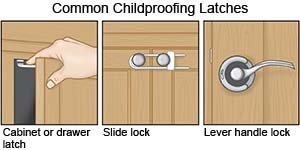Cannabis Use Disorder
Medically reviewed by Drugs.com. Last updated on Aug 4, 2025.
Cannabis (marijuana) use disorder (CUD) is a medical condition that develops from long-term use or misuse of cannabis. You are not able to stop even though it causes physical or social problems. CUD is also called cannabis abuse.
DISCHARGE INSTRUCTIONS:
Call your local emergency number (911 in the US) if:
- You have sudden trouble breathing or chest pain.
- You have thoughts of harming yourself or others.
Call your doctor if:
- You want help or more information on how to decrease or stop using cannabis.
- You have changes in mood or behavior.
- You have hallucinations (you see or hear things that are not real).
- You have questions or concerns about your condition or care.
Therapy
may be offered in a hospital, outpatient facility, or treatment center. Your healthcare provider can help you make decisions about therapy treatment. The goal is to help you decrease or stop taking cannabis. The following are common types of therapy:
- Cognitive behavioral therapy (CBT) can help you manage depression and anxiety caused by CUD. CBT can be done with you and a talk therapist or in a group with others.
- Motivational enhancement therapy can help you talk about your cannabis use and how it affects your life. A therapist can help you set goals to make changes.
- Twelve-step facilitation (TSF) is a plan that helps you stop cannabis use by following small steps. It is done one-to-one with a therapist in 12 to 15 sessions.
What you need to know about cannabis safety:
- Do not mix cannabis with alcohol, medicine, or drugs. This combination can cause an overdose or trouble breathing.
- Do not use cannabis if you are pregnant or breastfeeding. Cannabis stays in fat cells and slowly transfer to your baby over a long period of time. Cannabis can affect your baby's growth and development.
- Know the health risks of cannabis use. Regular use in adolescents and young adults can affect brain development and mental health.
- Ask about non-inhaled forms of cannabis. To support lung health choose non-inhaled cannabis forms such as oils, capsules, patches, or mouth sprays. Do not smoke or vape cannabis if you have respiratory problems such as asthma or COPD. Talk to your provider about non-inhaled forms of cannabis.
- Do not drive or use heavy machinery. Cannabis can slow down your thinking and reactions.
- Store cannabis in a safe place. Keep cannabis away from children and pets.

Follow up with your doctor or therapist as directed:
Write down your questions so you remember to ask them during your visits.
For more information:
- Substance Abuse and Mental Health Services Administration (SAMHSA)
PO Box 2345
Rockville , MD 20847-2345
Web Address: http://www.samhsa.gov or https://dpt2.samhsa.gov/treatment/
- National Institute on Drug Abuse
6001 Executive Boulevard, Room 5213
Bethesda , MD 20892-9561
Phone: 1- 301 - 443-1124
Web Address: www.nida.nih.gov
© Copyright Merative 2025 Information is for End User's use only and may not be sold, redistributed or otherwise used for commercial purposes.
The above information is an educational aid only. It is not intended as medical advice for individual conditions or treatments. Talk to your doctor, nurse or pharmacist before following any medical regimen to see if it is safe and effective for you.
Learn more about Cannabis Use Disorder
- Bath Salts Drug
- Can a Drug Test Lead to a False Positive?
- Cannabis: Uses, Effects and Safety
- Cocaine
- Devil's Breath: Urban Legend or the World's Most Scary Drug?
- Drug and Substance Abuse
- Ecstasy
- GHB or Gamma-Hydroxybutyrate
- Hashish
- Heroin
- Ketamine Abuse
Treatment options
Care guides
Further information
Always consult your healthcare provider to ensure the information displayed on this page applies to your personal circumstances.
